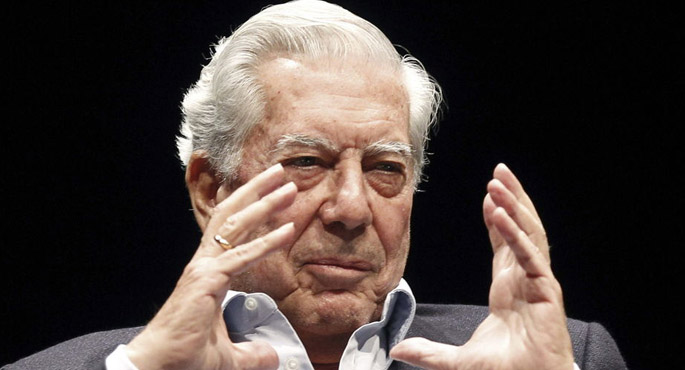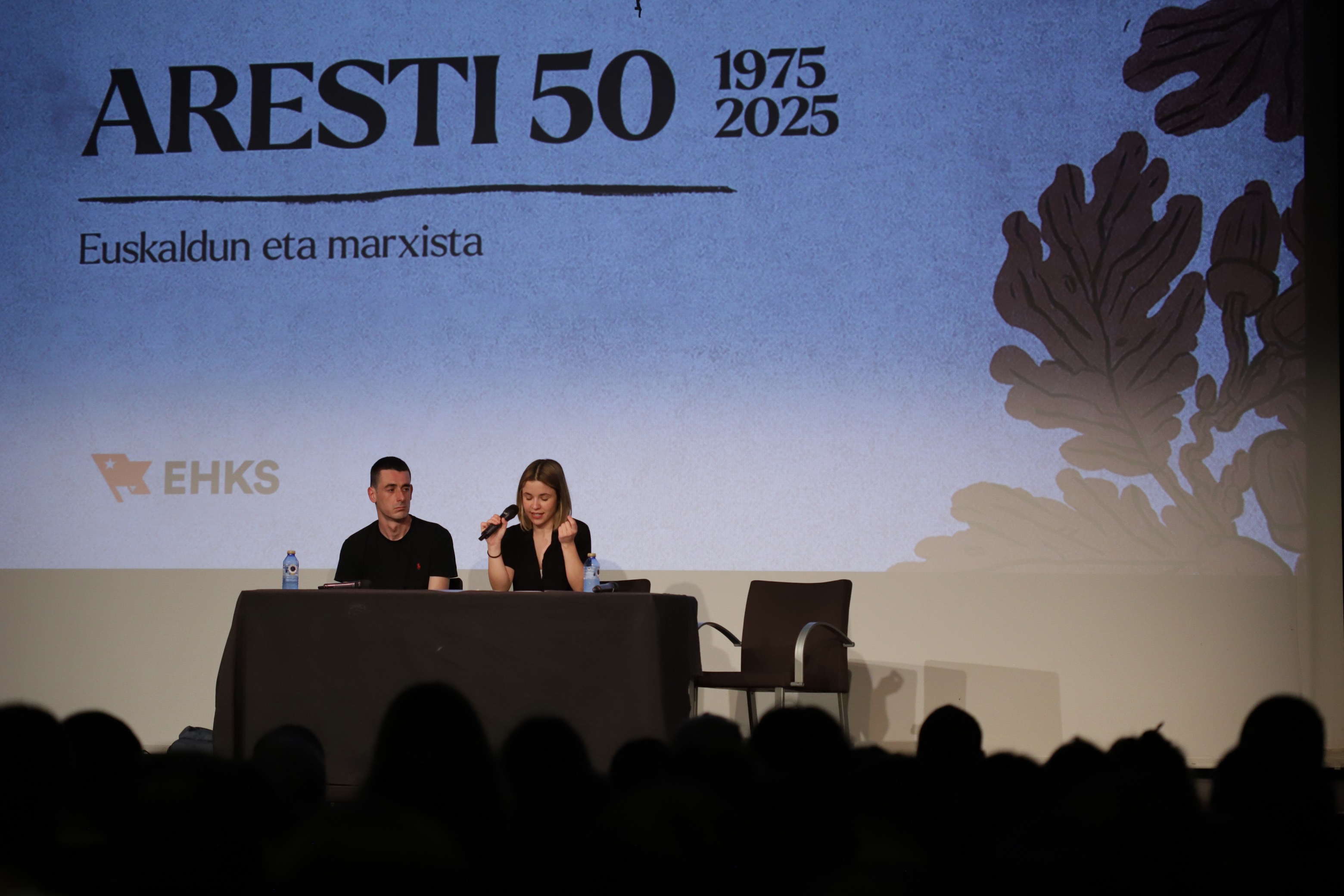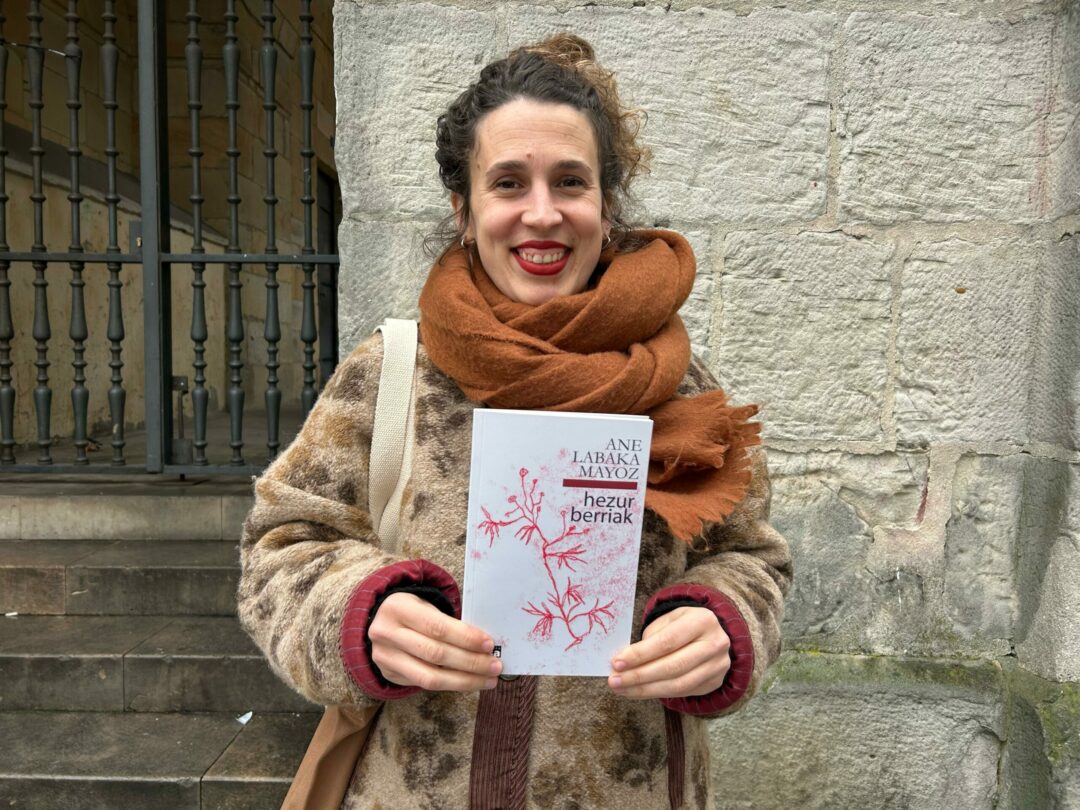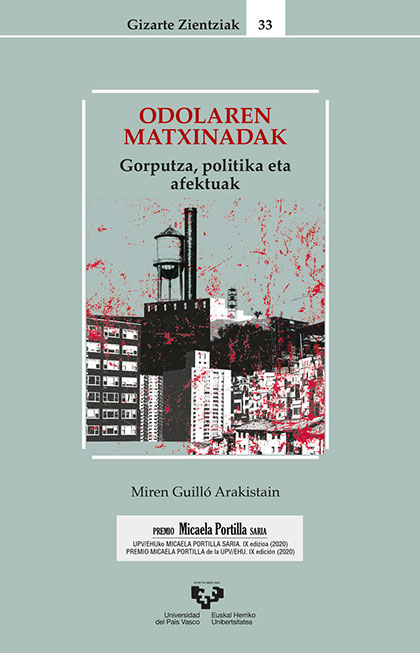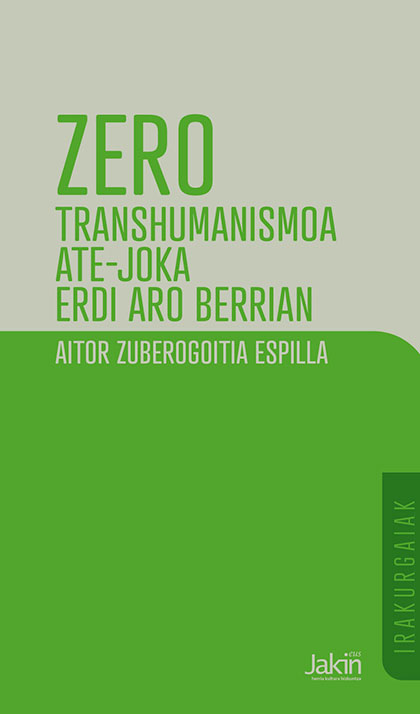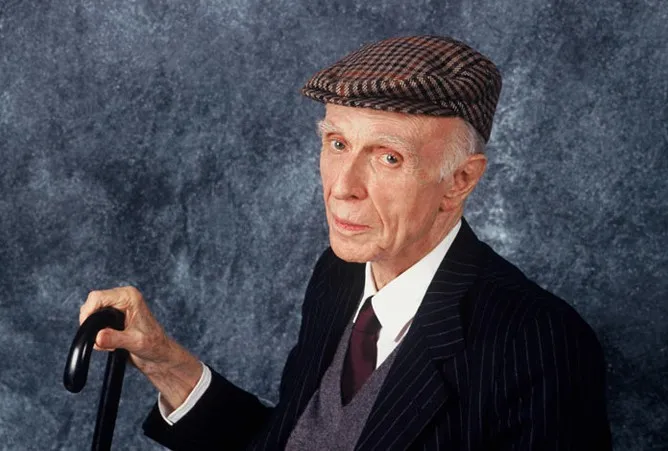"Our uncle saw how Txabi Etxebarrieta was killed."
- It is more than fifteen years since the anthropologist William Christian, who analyzed Ezkio's visions on these same pages of ARGIA, told the truth that his children find it impossible to keep their parents' memories. Koldo Alijostes makes it impossible. Acting.

Teknologia irakasle eta IKT arduradun Gasteizko Koldo Mitxelena Institutuan. Historia du maite, memoria historikoa landua du oroimenarenharra.koldomitxelena.net gunean, eta mitologia, berriz, amaroa.eus-en. Euskal Herriko mitologiaren jainkoak eta jeinuak liburuaren egile da iazko Bizitzak baino lehen. Gure solaskidearen kasuan, bizitza bete kontu bezainbat da kontu bete bizitza. Gure historia kontatu du, etxetik.
You've revolutionized Christian's truth, you've told your family's story in Lives (Pamiela, 2019). “Our home story,” he adds. “Our home history” is a project by
Bernardo Atxaga and Asun Garikano. They wanted to encourage people to write, to tell the story of the family. And it was about telling the story of Euskal Herria from family to family and from home to home. The idea seemed very interesting to me. The family story is something close, big, real. I thought it was a good idea to collect that story from home to home. In my case, before the book Bizitzak, I started recording what they counted at home. My father was a great storyteller. On the food table, history had a great habit of telling. “My grandfather spent so much… My uncle so much… I left here...” That's right. And I once said to myself, “When the father goes, all these stories will be over! Besides for me, it would also be nice to keep it for my descendants.”
Did you start recording your father?
Yes, I thought I had to write them down, and for that I thought it was best to record. And I took a couple of evenings and started recording my father. And I made the book, and when my parents celebrated their golden weddings, I scolded them. I maqueted it, I printed it. In Calle Errementari [Vitoria] there is an artisan binding that bound me three specimens. I wrote for the housewives: for the parents and for the two children. But once I went with Asun Garikano. Tolosarra Asun and her father are tolosarra, Andoni. Our father was from Ibarra, but in Tolosa he walked a lot. I mean, there could be stories that I had collected my father and that Asun's father also knew, and I left the book to Asun. He read it, and Bernardo [Atxaga] proposed to write to me Bizitzak.
So, the book I already had written?
In part, alone. In the house book the accounts of yours appear, as the narraban.En the book Lives, adding a historical context to the story of yours. I've completed the book for you. I think I've contextualized the facts and I've also made historical memory. The book’s experiences are authentic: great and small events, common and singular, intimate and bitter… Many stories and stories. I think it is a source of unbeatable inspiration for fictionists, who in most cases start from reality. They embrace, enrich and rotate a real passage and create beautiful stories. I don't have that capacity. It is also said that reality outweighs fiction...
.jpg)
"Some family members lived from within important facts of history, they were not looking apart, they did it in a certain area.
And I come from there.”
He told firsthand the death of Txabi Etxebarrieta, for example.
Because my uncle [Eduardo Osa Santibáñez] was there. It has always been said that there were Txabi Etxebarrieta and Iñaki Sarasketa. And the civil guard. But there was also another witness there, the incognito witness, our uncle. After the murder of Etxebarrieta, Sarasketa also did not know what happened, running in this serious situation, as he could and as he could not, because he left. Our uncle, instead, was in the car, he was the driver. There he was, he lived what happened. On the one hand, the civil guard shot and Sarasketa running. On the other hand, he saw Etxebarrieta killed. My father told him as his uncle. She said Etxebarrieta was first shot to death. That a civil guard had Etxebarrieta grabbed in front of him, so that he did not move, and that the other civil guard, when Sarasketa fled, went to them, threw the pistol between the two bodies, turned the gun and shot Etxebarrieta. That's what our father always said, telling him his uncle. This was never published until it appeared in the book Bizitzak. I regretted my uncle not accumulating more accounts directly. When my uncle told my father… How many stories have we lost! It makes me sad.
Etxebarrieta's death was a punishment. They beat the snail until he said the names of your uncles: Eduardo Osa and Juli Alijostes.
His uncles were jumping. And so did our father. At most at that time. It was a struggle against Franco. In Tolosa, in Ibarra, in Amezketa… the nationalists were in the salsa. Our uncles were also there and they knew Jokin Gorostidi and Txabi Etxebarrieta. Txabi was held at home and on the day of his death was taken by his uncle in the car, along with Sarasketa. Later, when he was captured, he took those of "Jesus Christ," handed over by the civil guards. His father said that his uncle and both had been arrested at the Tolosa Barracks. And their screams, their anteches, our uncles. Then came the Burgos process, the incarceration of his uncle, the deportation of his aunt.
Where did your aunt, Juli Alijostes, send?
a Spain. Navas de San Juan de Jaén. I spoke to a deportee, Eugeni Sarasola. I know he said it. They were taken by bus. They were all prisoners here. Their crimes were not serious, they participated in a demonstration, they were run over by distributing propaganda… So they were. In the case of Eujeni, for example, he was captured in the parish house of Leaburu-Gaztelu, in a stay with his parish priest, Lukax Dorronsoro. No indictment or crime, but Eugene was also arrested and deported. Eugene is reminded that on that bus they were all from here, mostly men, but there were also four women. And all four of them were introduced into a back cage of the bus. Inside the bus, a cage made of a fence. Our aunt Juli wasn't educated, but she was very smart. They came to Navas de San Juan, and red, ETA's -- they didn't do well. Until he went to Mass! As locals saw her aunt at a Mass, all friends! Eugeni was deported to Albacete.
He witnessed his father's arrest while playing with his friends in Amezketa Square. What did you feel when you saw his father being a civil guard?
I was a little boy, I was six years old ... I think I was rage. And sadness. I realized my father was tied by the hairs. I ran out of words, rabid. Our house was in the plaza de la Plaza de la Plaza de la Virgen. I came the jeep of the civil guards, I stayed in front of our house, I entered our house… and after a while I saw that they carried my father. I felt orphan. And when I went to my mother, she cried in the kitchen… The child doesn’t know what’s going on. He's rage to see that his father has been driven that way. Sadness, seeing the mother crying in the kitchen. I was six years old, and yet, how do those things stay in my head! Besides, I don't have much memory.
Little memory? The loft is full of memories...
I have forgotten many things, however! I also remember something else. The Aberri Eguna. Donostia-San Sebastián. [1968] Wrong! Police on horseback in San Sebastian Street! Think how a young child should look at a big horse up there! And horses trolling down the street, ca-kan-ka-kan-ka-kan-ka-ka-ka! How serious! And we are running! I remember walking into a court, climbing up the wooden stairs, all dark, and going up to the loft. There we were in the dark. When we left, I said to my father, “We’re going to take the prudent one!” For me all the buses were Zubeldia! I only knew the bus from Amezketa, which was the bus from the Zubeldi. “We’re going to take the prudent one!” Another very vivid memory, Tolosa's. In the church of Santa Maria the ikurrina was placed. In the bell tower there is a cross on which it was placed to see. And we went to see him! We are shocked, no matter how small! But at the ikastola we also went like this in Amezketa, painting the flags. I also had this church ikurrina recorded. How do things stand for childhood, right? It's surprising.
You witness the beginning of the ikastola… I
think we were five or six children. Some parents gathered in the village, surrounded a small room, and there we were. Our first lady was Koro Zabala, sister of Fraile Pello de Arantzazu. I was a very young girl... I didn't try any 'national' school, and less badly, because the 'national' then was really 'national'. His brother, however, was there. Mattin.
As he said in his book, Mattin also took galantes. Civil guards always work.
Yes. In Amezketa there will be three or four groups per ETA. They were people from different crews, and they were all integrated into the organization! Mattin was 16 years old. They started distributing propaganda, putting up a flag. At parties, they once took off the light… That’s the case. Very young. One day he happened to his father in the dungeons of the Tolosa Barracks. I was sixteen! They thought they were going to make a revolution, that they were going to liberate Euskal Herria, that the struggle was necessary. At that age! It was very beautiful. It had consequences. He says he made time, always thinking he was followed by the police. And when he lived in San Sebastian, he looked out the window. “Is that going to be the secret [police]?” He lived with that tension. Those who have gone through the hands of the police have been left with these surprises inside.
Did you realize the value of these testimonials when you started recording yours?
No. I was used to listening to those issues. They were “family affairs.” Father is a storyteller! My grandfather, on the other hand, had never heard anything, and he saw them red during the war. The mother didn't count very much either. We live with our mother. It's not a storyteller. It's always been more familiar. His father, for his part, was in all the sauces. And I didn't receive directly testimonies from my uncles. That's my shame. I realized late what those family issues were worth. When we're young, we have our heads somewhere else. In adulthood, he is aware of the value of his history. However, I thought they only had value for those in our house. I wrote the book for our daughters to receive information about this story. If I hadn't told him, the daughters wouldn't have received any account from the family. And then it's over!
He recorded and brought family members on paper.
And when I decided to start writing, my father's deceased, I started listening to the audios ... I made good cries! It's hard. The first booklet, which I made for those at home, I wrote it in third person, but when I started writing Vida, it seemed stronger, more authentic. I started transcribing, and I found that. “I can’t do this oral and do it in third person.” My initial intention was to supplement and round off my father's engraving. I thought I would dedicate myself to the third person, but I soon realized that I didn't, that I had to write like witnesses, in the first person.
.jpg)
"What has happened to our family has happened to several families in the Basque Country. How many have you hit the barracks? How many have spent years in jail? How many have been deported?
He wrote the story of his house, that of Euskal Herria.
I like history. When things were done, how, who and who walked… I like to personalize and concretize things, because a lot of data doesn’t appear anywhere. These are small but important data. The restaurant Erbia de Tolosa, for example, is not known to today’s young people. But at that time it was important. Maybe it has a sentimental touch, maybe romantic.You've told the story of your family, and the story itself, and that concrete way of telling,
has portrayed you ...
I know. I know him. I haven't conveyed many feelings, it portrays my family reality, but I have nothing to hide.
At that time, and later. But I mean that time. How many did, like our grandfather, leave his family and go and fight Franco? Many. The history of our family is also of many families in the Basque Country. I'm proud of the attitude our family took. Some members of the family lived from within these important events of history, which they were not looking at separately. And they also did it in a certain area. And I come from there.
You are satisfied with the work you have done and with the book...
Very happy. Still, from time to time, I open the book there or here, and I read some passage. They are nice, entertaining, easy-to-read stories… I owe it above all to Asun Garikano, who gave me a very good advice: “The writer has to work so that the reader does not have to do so.” Having to read a paragraph several times is not a good sign: either the subject is difficult, or it is a knot. Very good advice from Asun. You can't write easy and rich. And journalist Benat Castorene also told me that. “How can we not admire the quality of the Basque country in addition to the content? Rich and clear at the same time, simple and sophisticated at the same time, popular and understandable to all of us.” Some readers have told me that those in the book are hard facts... Think about the accounts of the prewar, the atmosphere of the dwellings. To the great-grandfather.
That's the last thing you have to tell us, the great-grandfather...
We know that from the mothers. His grandfather was Juan Tomás, married at Maieta de Leitza. With the eldest daughter. When her mother's father was born, she died. Then, John Thomas married the deceased's sister. Tell us how the loves were going to be there! What he could! They had four children, but when she had the last, the second lady also died to our great-grandfather. In the meantime, he stayed with his son in the dwelling, and sent our great-grandfather from Maieta, with five children, no dwelling, no house, no work. And he had to take the five and divide them into several houses and houses of Leitza, as a slave. The great-grandfather himself was also raised to a farmhouse. The father had to be for him, the whole extended family, he was also a slave. Life in the farmhouse was then terrible. Work, work and work. Another thing is that image of the farmhouse that made us a Txomin Agirre in Garoa, for example. The hamlet... hard! Yes before, and yes now!...
* * * * * * * * * * *
Distance
“I’m a professor, I’ve also been through historical memory, and that’s what I see, that young people see from afar what we had lived and, of course, what our ancestors lived. There's a lot of distance. As we live in what happens in a foreign country. “Amazing things are happening!”, tell me, but we don’t really feel like we’re not part of that reality. We see from the distance those who are going there.”
The thread of memory
“To maintain the transmission, for a few years we have started working memory with the students at the institute [Koldo Mitxelena]. We started collecting materials for the school, about the war and Franco of 1936. History, Art, Literature... We collect films, documents, books and other materials, design teaching units and distribute them in other institutes. Our work was very well received.”
Jokes: Elexoste
“Our last name, Alijostes! And in Amezketa, it was very rare. That whirlpool inside me! Amezketa and Alijostes! When I was young, some children from the village called me Alikates, in the mockery. What rage! One day, therefore, a genealogy expert completed the report and clarified the origin of the call: Elexoste is our name. They have transformed art that has become jokes.”
LAST WORD
Writer
Mikel Asurmendi blogak.eus last July: “I interspersed a book of stories with Bizitzak. (…) For a moment I was in doubt — lived — that the story Koldo Alijostes ‘the writer’ was real or fiction. The hard of the beautiful is so mind-blowing.” Koldo Alijostes: “I welcomed what Mikel Asurmendi wrote. Meanwhile, he said ‘writer’ of me. But am I a writer because I've written a couple books? I don't feel like a writer. However, I think he made a nice critique of the book.”
Under the asphalt, the flower
Text: Monica Rodriguez
Illustrations: Rocío Araya translation
of: Itziar Ulcerati
A fin de cuentos, 2025
Ereserkiek, kanta-modalitate zehatz, eder eta arriskutsu horiek, komunitate bati zuzentzea izan ohi dute helburu. “Ene aberri eta sasoiko lagunok”, hasten da Sarrionandiaren poema ezaguna. Ereserki bat da, jakina: horra nori zuzentzen zaion tonu solemnean, handitxo... [+]
Perhaps we could say that this text is the result of an appraisal meeting. However, valuation meetings often leave a dry and bittersweet taste in the mouth. It's a sunny Tuesday afternoon. 16:53. We've connected to the valuation meeting, and we've decided to put a lemon candy in... [+]
Odolaren matxinadak. Gorputza, politika eta afektuak
Miren Guilló
EHU, 2024
Miren Guilló antropologoaren saiakera berria argitaratu du EHUk. Odolaren matxinada da izenburu... [+]
Astelehen honetan hasita, astebetez, Jon Miranderen obra izango dute aztergai: besteren artean, Mirande nor zen argitzeaz eta errepasatzeaz gain, bere figurarekin zer egin hausnartuko dute, polemikoak baitira bere hainbat adierazpen eta testu.
Zero. Transhumanismoa ate-joka erdi aro berrian
Aitor Zuberogoitia
Jakin, 2024
-----------------------------------------------------------
Hasieran saiakera filosofiko-soziologikoa espero nuen, baina ez da hori liburu honetan aurkitu dudan bakarra. Izan ere, biografia... [+]
Adolfo Bioy Casares (1914-1999) idazle argentinarrak 1940an idatzitako La invención de Morel (Morelen asmakizuna) eleberria mugarritzat jotzen da gaztelaniaz idatzitako literatura fantastikoaren esparruan. Nobela motza bezain sakona da, aparta bere bakantasunean, batez... [+]











